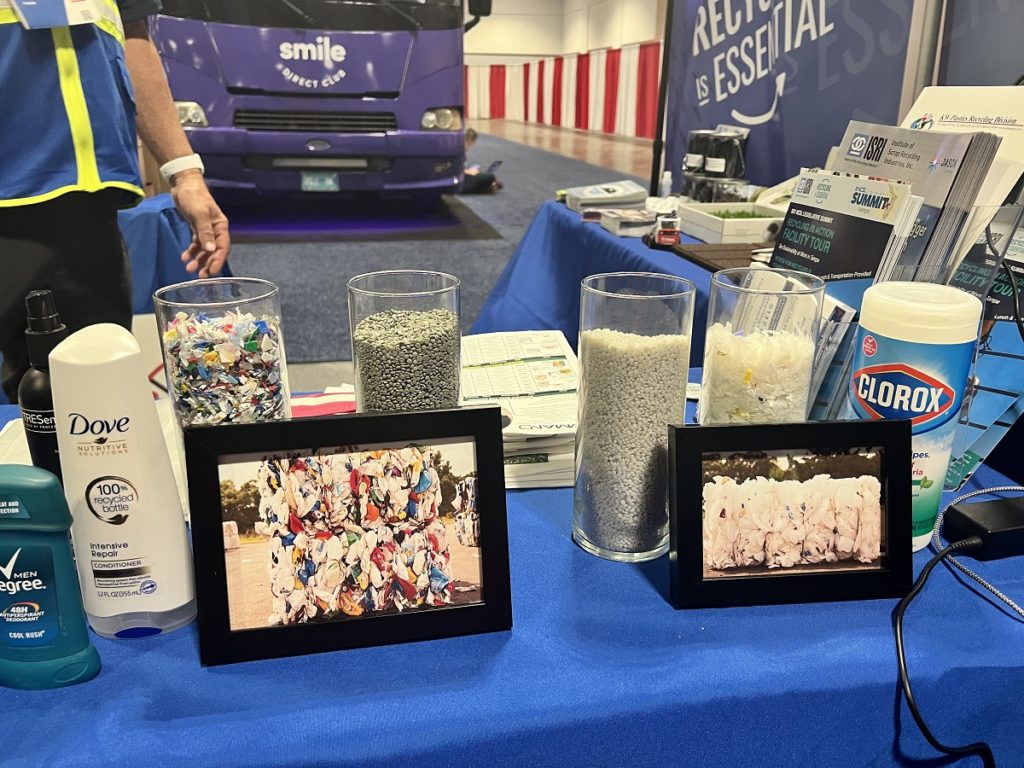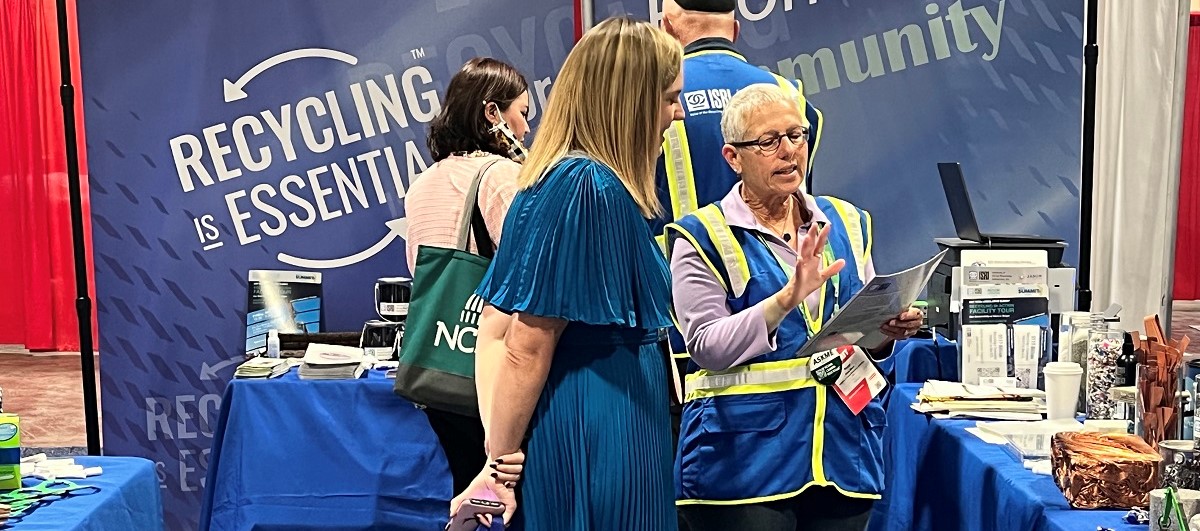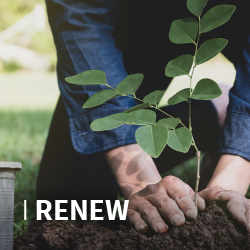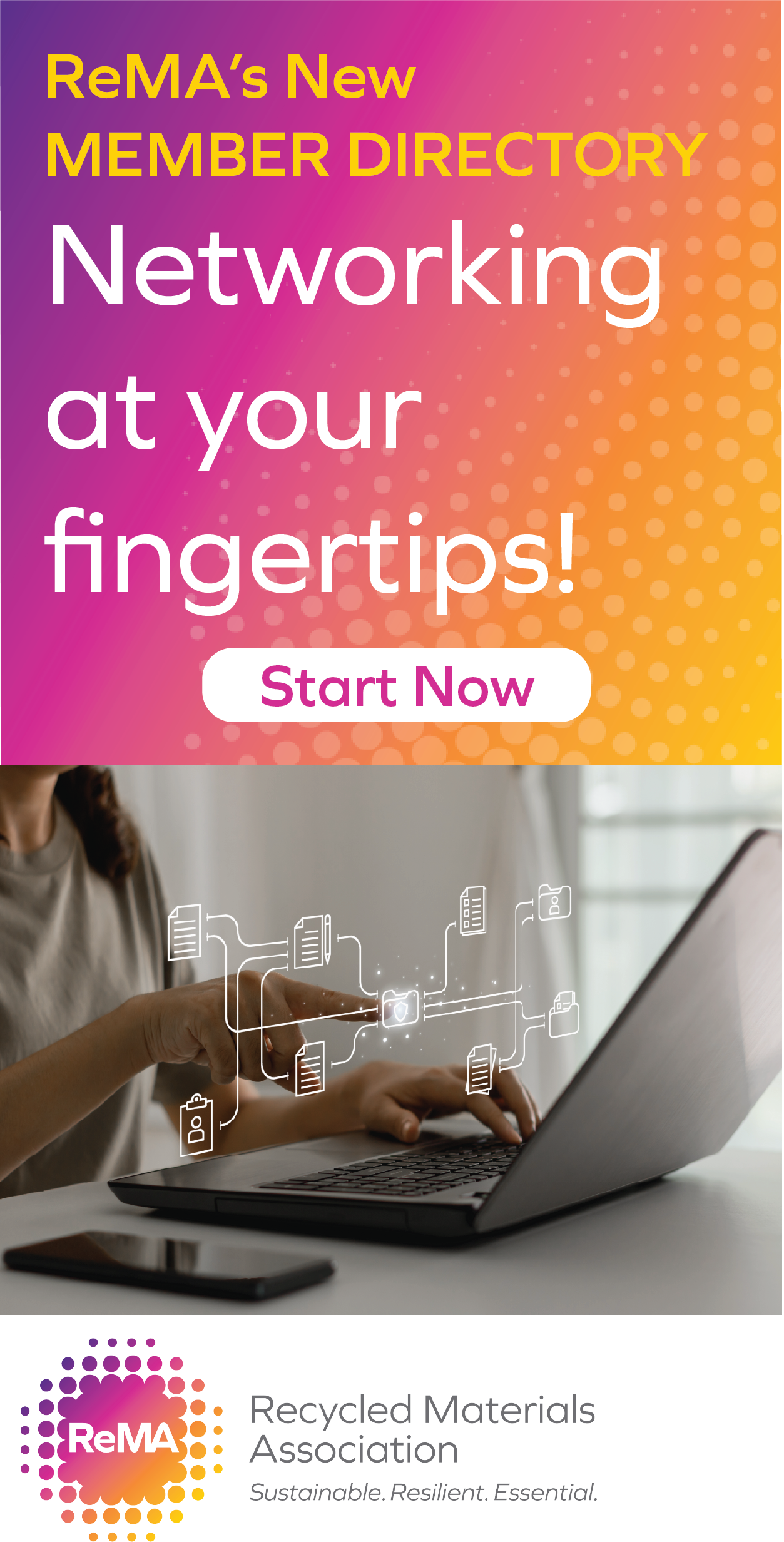Derick Corbett didn’t know what to expect when he signed up to represent ISRI at the 2021 National Conference of State Legislators (NCSL) in Tampa, Fla, which ran Nov. 3-5. Though the senior vice president of Pull-a-Part had never attended any past summits, he had a feeling there were several challenges surrounding the event. “I could tell it was a difficult year in the planning process due to COVID-19 and the limitations, but [ISRI staff] made working around those problems look easy,” he recalls.
Adaptability was the theme for ISRI planning and implementation throughout this year’s NCSL summit. Already delayed from August to November due to COVID-19 concerns, the summit introduced a host of challenges but, as usual, ISRI members rose to meet them all. “We had a good time, we worked through the challenges that were presented, and this kind of show must go on,” says Aaron Gaby, general manager of Gaby Iron and Metals.
Each year, ISRI members use the legislative convention to show state policymakers and legislative staff how the recycling industry operates. Even though the association couldn’t bring in large equipment or bales of recycled commodities, ISRI and members worked on a smaller scale to provide an onsite demonstration of the industry.
At the display, legislators could hold commodities in their hands like a piece of aluminum, part of a circuit board, or some OCC (old corrugated container) paper. The physical connection was important for legislators, Gaby says. “People know you can recycle a computer, but they may not understand the process. This allows them to see all the components, how they’re broken down, and properly dismantled so they have a better understanding of what we do.”

Danielle Waterfield, ISRI’s chief policy officer, recalls the creativity and care it took to fit all the commodities into the booth space. She notes that Gaby organized some of the mini displays to tell the story of a recycling yard. “We arranged the models in a way where the magnets, for example, were on top of the correct ferrous samples,” she says. Each commodity had a chance to shine from the recycled rubber mats that covered the booth’s floor to the paper display and pizza boxes WestRock provided.
Emily Ham and Matt Wells, senior regional managers in government relations for WestRock, appreciate the opportunity NCSL provides to reach legislators from different states in one space. “Matt and I are multistate,” Ham says. “He handles the Northeast and MidAtlantic, and I have the Southeast and North Central regions. For us to be at one place at one time talking to legislators from a number of states instead of traveling to one capital or state conference is so valuable.”
NCSL also creates an easy environment to engage with policymakers. “It’s an opportunity to talk with them in a relaxed setting,” Wells says. “With our jobs, we’re usually talking to legislators during sessions and there’s not a lot of time. At NCSL, you can have in-depth conversations about a specific policy area where there’s a good story to tell.”
Besides at the booth, ISRI members shared the industry’s story with legislators at the recycling in action workshop session on Friday afternoon, followed by a tour of Trademark Metals Recycling’s (TMR) Ybor facility. The pre-tour workshop attracted more than 50 attendees while the facility tour fully met its 30-attendee capacity limit despite inclement weather. The association gave back to its host city through a community service project on Tuesday where members helped pack boxes of food to later be distributed to local communities.
When it came to talking about the industry, Corbett was glad to have various resources on hand, like the economic impact information, which was broken down by state and district. “To have all that information readily available really tied what we do in the industry to the legislators personally. The staff did a great job to make sure we got as much out of the opportunity as we could.”
When lawmakers stopped by the booth, ISRI members eagerly introduced themselves or directed legislators to recyclers from the lawmaker’s state. “It seemed like there was always activity at the booth,” recalls Barry Wolff, executive vice president/general manager of Charleston Steel & Metal Co and president of ISRI’s Southeast region. “I think there was a good mix of people who had participated in NCSL before and were comfortable talking with legislators and new people who became very comfortable very quickly.”

Coming from a government relations background, Ham found the other ISRI members at the booth had no trouble talking with legislators. “Most of the other folks there were business owners or managers,” she says. “But everyone was comfortable talking about what they do and why [their work is] important to the circularity of our economy.”
Prior to the summit, ISRI staff provided training to attendees over planning calls and meetings. Waterfield and Justin Short, ISRI’s manager of government relations, also prepared member packets with information on the week’s events, appropriate attire, and talking points.
Though a self-proclaimed “newbie” to NCSL, Corbett understood the necessity of the event and the value of the in-person connections. “Zoom is a great tool, as are email and the phone, but shaking hands and looking someone in the eye is still going to be the most significant relationship you can build,” he says. “And when you start that relationship, you build a foundation of trust. That’s how you build a partnership. That give-and-take becomes incredibly valuable to constituents and legislators.”
Gaby, a long-time NCSL attendee, agrees with Corbett. “Our businesses are more than just your soda bottle or soup can,” he says. “By talking with us, legislators can connect with the people who elected them. We’re that direct link from the streets of our communities to Capitol Hill. I think people like doing business with people who they have a relationship with, that’s how we do it with our customers and I think it’s the same with legislators. We want them to feel comfortable coming to us to answer their questions.”
Volunteering at NCSL may be a good starting point for members looking to get involved. “NCSL brings out many ISRI members who may not typically engage at the national level,” Waterfield says. “We advise new attendees to just be themselves, tell their own stories, and talk about what they do best.” ISRI members who have attended previously are great mentors and happy to show them the ropes.
ISRI is always looking for volunteers, Gaby says. He recommends interested members consider blocking off their calendars early for next year’s Legislative Summit in Denver, Colo., Aug. 1-4. “We always need volunteers to help and connect with local legislators, lobbyists, and staff and it’s also fun,” he says. “It’s great to see ISRI members across the country connect with each other. It’s a good event to get introduced to the governmental/political side of the association. There’s a lot that happens in D.C. and in the state capitals. This is a great way to participate in those efforts on a national and local level.”
Wells says reaching out can be as simple as telling your story at NCSL. “At the state level, a lot of legislators have day jobs. They can’t be policy experts on everything so they’re not going to understand everything about your particular issue unless you walk them through it. I think the first step is ‘show up and be willing to engage.’”
Once you’ve gotten involved, the trick is to stay involved by keeping up with the issues in your state and the industry. “Know what’s in the news and be able to anticipate questions you’re going to get,” Wolff says. “Have those answers ready or know the resources and people nearby who can answer those questions.”
Engaging with legislators not only gives recyclers a seat at the table but a voice as well. “This event gives us access to those who are helping shape the laws and regulations affecting the industry,” Gaby says. “We can benefit our businesses and the industry if we help educate and properly inform policymakers about what helps and hinders our industry. This event shows what our industry is about, what we do, and how important our businesses are to the local, state, and national economies, our impact in the manufacturing sector, and our role in protecting the environment.”
All photos courtesy of ISRI. Featured image caption: Rose Mock speaking with an attendee. Body image 1 caption: Aaron Gaby speaking with an attendee.
Additional Resources













